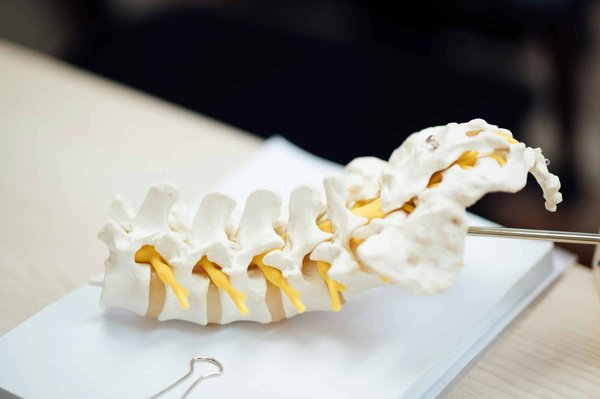
Soaring Above the Ordinary in Automotive, Business & Culinary Excellence
Falconry Festival brings you sharp-eyed perspectives on the world of high-performance vehicles, strategic business insights, and culinary mastery. Discover in-depth articles, expert analyses, and inspiring stories that elevate your knowledge across three dynamic fields.
Explore Our Coverage
Dive into comprehensive guides and features across diverse topics
automotive
Cars, vehicles and driving
business
Business and economy
cooking
Recipes and culinary arts
finance & real estate
Finance, investment and property
health
Health, wellness and wellbeing
home & living
Home, decor and lifestyle
News
Latest news and current events
pets
Pets, animals and companions
sports
Sports, fitness and competition
technology
Tech, gadgets and innovation
woman / fashion
Fashion, beauty and lifestyle
The automotive reviews here go beyond surface-level specs. I've learned more about engine dynamics and vehicle engineering from these articles than anywhere else. The writing is accessible yet thoroughly informative.

Your Gateway to Expert Insights
Falconry Festival curates exceptional content that bridges the gap between automotive innovation, business strategy, and culinary arts. Our editorial approach combines thorough research with real-world perspectives to deliver resources that inform and inspire.
- Daily articles from industry veterans and passionate enthusiasts
- Comprehensive guides covering technical details and creative techniques
- Market analyses and trend reports across all featured categories
- Behind-the-scenes features revealing the stories that matter
Latest articles
Our recent publications

Guide to Earning Your Degree While in the Military
...

Cigar humidors and essential accessories for cigar aficionados
Elevate your cigar experience with the right humidor and essential accessories. From cutters and lig...

Making your chatbot multilingual to expand your audience
In today's globalized market, reaching a diverse audience is crucial for business growth. One effect...

How to use MyImageGPT to generate images for your PowerPoint presentations?
Creating engaging and visually appealing PowerPoint presentations is important for effectively commu...

Can an Upgraded Oil Pump Improve the Reliability of a High-Performance Engine?
...

How to Custom-Tune Your Audi Q5's Adaptive Suspension for Personal Driving Preferences?
...

What's the Best Method to Calibrate Throttle Position Sensors in a Nissan 240SX?
...

How Can UK Fashion Designers Collaborate with Technology Startups for Smart Clothing?
The fashion industry in the UK is witnessing a dynamic shift. The digital revolution is accelerating...

What Are the Best Strategies for Attracting International Students to UK Online Courses?
With the advent of digital technology, the world has become an interconnected web of learners, educa...

What Are the Ethical Considerations for AI Recruitment Tools in UK Businesses?
...

How Can You Create a Gourmet Prosciutto Wrapped Melon Salad with Balsamic Glaze?
The warmth of the summer sun is not only about beach getaways and outdoor activities. It's also the ...

How to Craft a Gourmet Spiced Pumpkin Soup with a Coconut Cream Swirl?
As the autumn chill settles in, there's nothing quite like a warm bowl of soup to bring comfort and ...

What's the Secret to a Savory Clam Chowder with a Smoky Bacon Garnish?
From the shores of New England to the bustling bistros of London, the clam chowder has secured a fir...

How Can Real Estate Professionals Prepare for the Impact of Brexit on EU National Tenants?
With the finalisation of Brexit, the real estate market in the UK, particularly regarding EU nationa...

How to Choose the Right Property Management Software for UK Real Estate?
In the digitised era where technology rules, property management has become a much easier task, than...

What Are the Best Practices for Converting Victorian Houses into Energy-Efficient Homes?
Victorian houses are an indispensable part of our cultural heritage. They are replete with ornate de...

Can Wearable Exoskeletons Provide Mobility Solutions for Spinal Cord Injury Patients?
...

How Does Participation in Community Supported Art Programs Affect Individual and Public Health?
Community Supported Art (CSA) programs are gaining attention as a viable means for enhancing individ...

What Are the Best Sleep Tracking Technologies for Improving Sleep Disorders?
In today's fast-paced society, getting a good night's sleep is not as easy as it used to be. Many of...

How Can You Create a Space-Saving Vertical Bike Storage Solution in a Small Entryway?
Congested, crammed, cluttered – all too often, these words describe our entryways. Whether it's shoe...

How to Design an Accessible and Safe Bathroom for Elderly Family Members?
Ensuring the safety and comfort of your elderly family members is of utmost importance. A significan...

What Are the Best Solutions for a Multi-Sensorial Play Area for Toddlers?
...

How to Create an Effective Disaster Preparedness Plan for UK Coastal Cities?
Disasters can strike at any moment, and the coastal cities of the UK are not immune to such events. ...

What Are the Latest Developments in Plastic-to-Fuel Conversion Technologies?
As we grapple with the ever-growing problem of plastic waste, groundbreaking solutions have emerged,...

What's the Role of Nutrigenomics in Personalising UK Diet Plans?
...

How Can You Train a Parakeet to Perform Complex Tricks Using a Flight Harness?
As parakeet owners and lovers, you've probably spent countless hours admiring your feathered friend'...

How to Monitor and Adjust the Humidity Levels in a Dart Frog Vivarium?
...

What Are the Best Tips for Caring for a Senior Dog with Degenerative Myelopathy?
...

How Can Goalkeeper-Specific Plyometrics Improve Reaction Time in Football?
Football, known as soccer in some parts of the world, is a sport that requires an exceptional blend ...

How Can Real-Time Biomechanical Feedback Enhance Swimming Technique?
...
